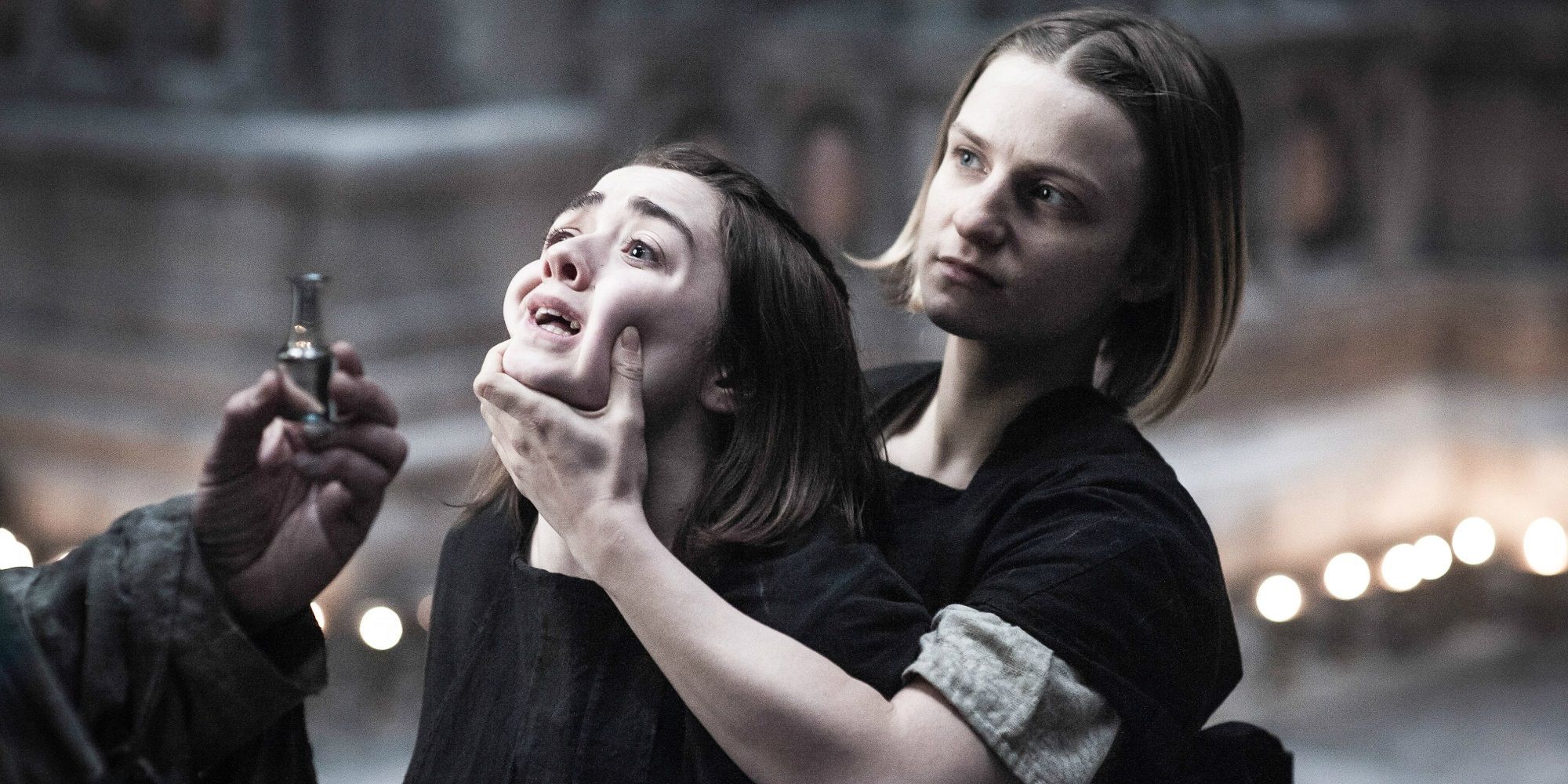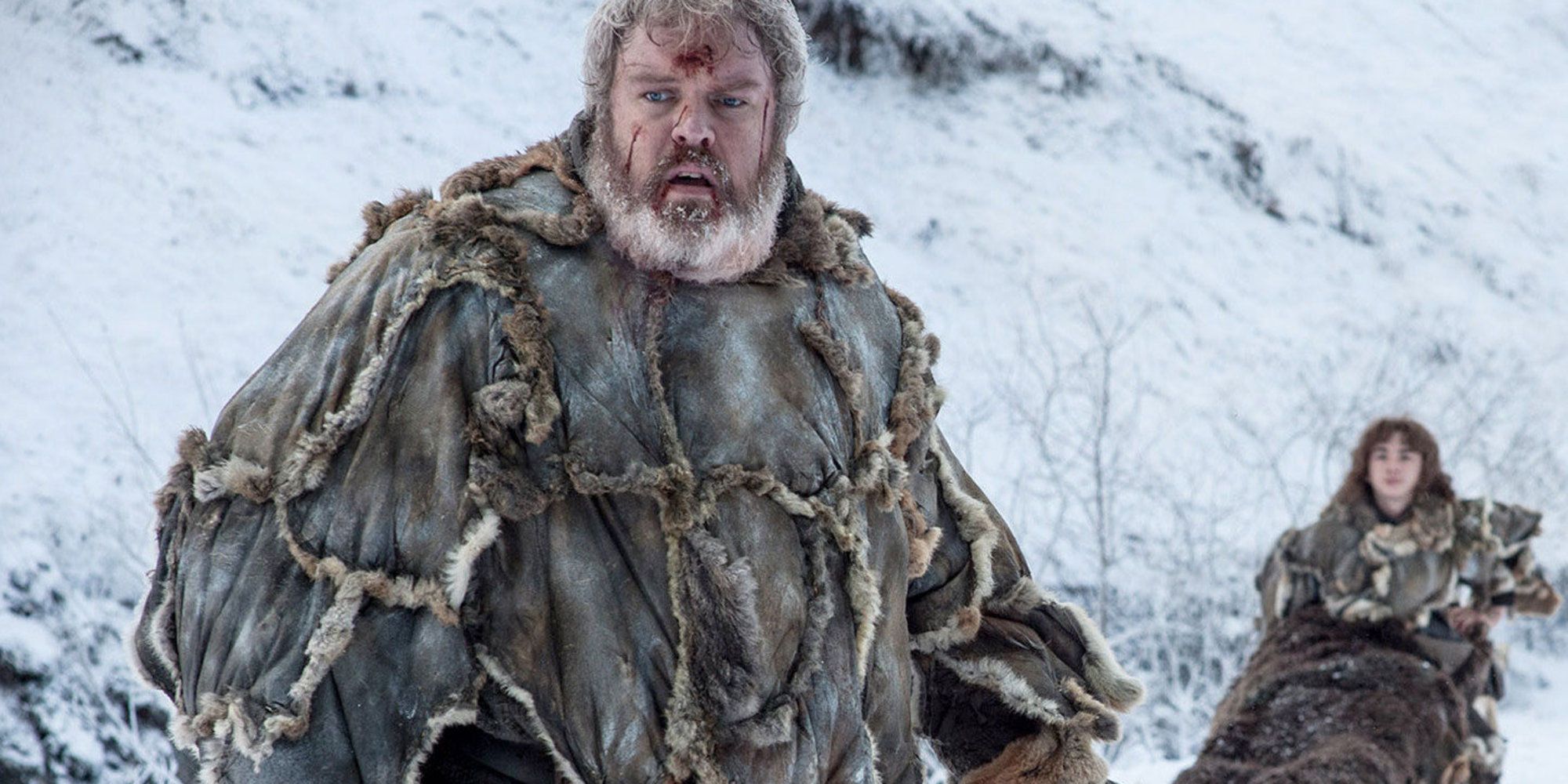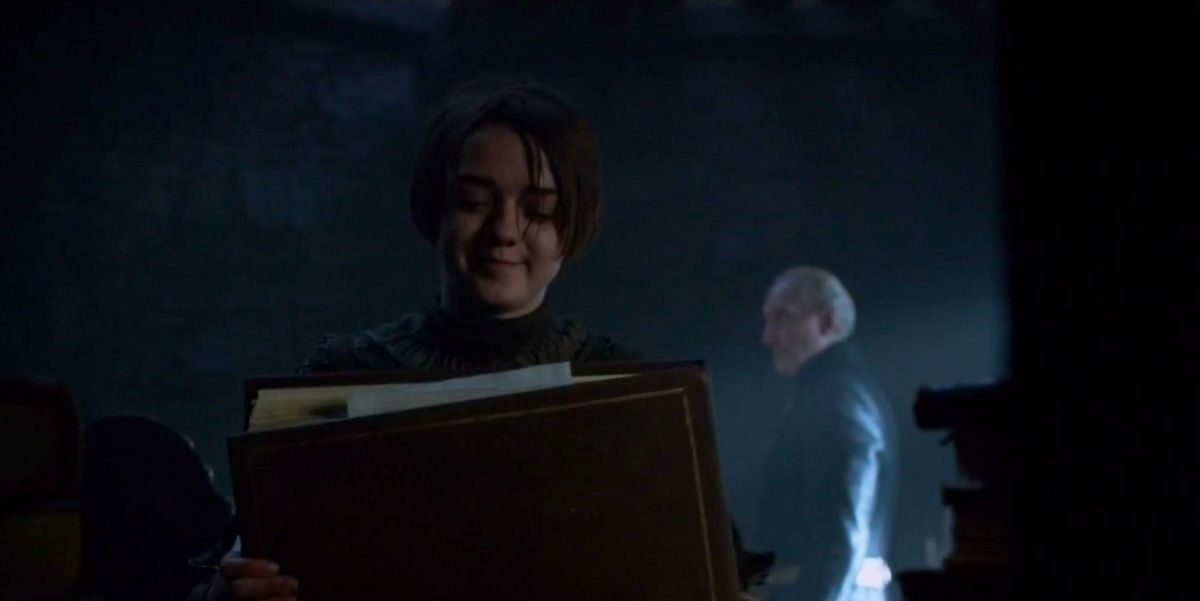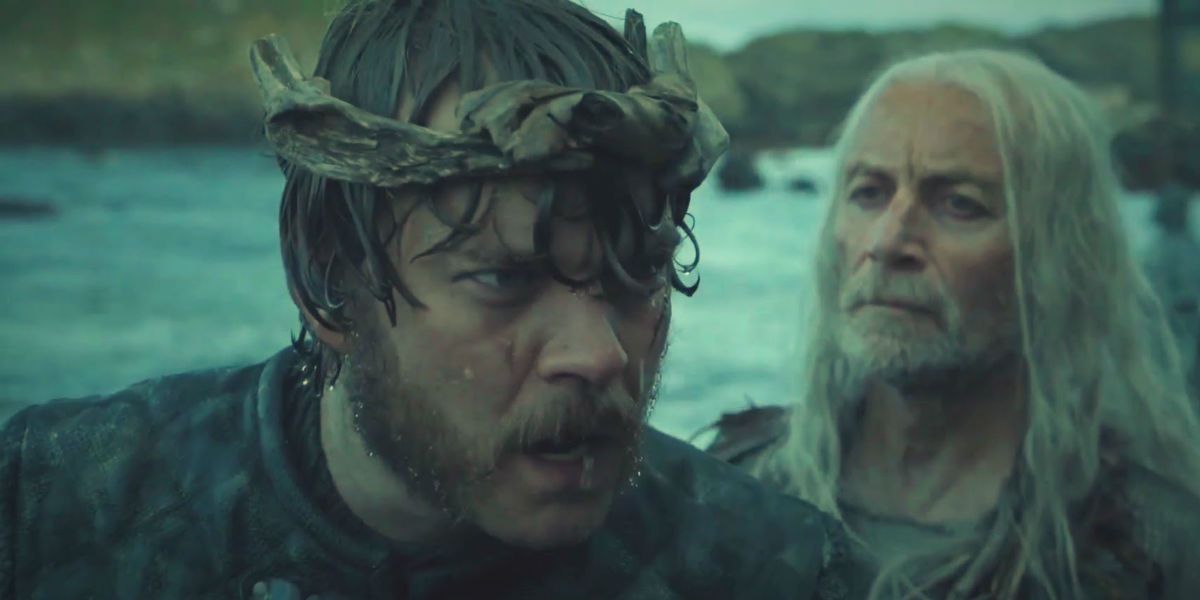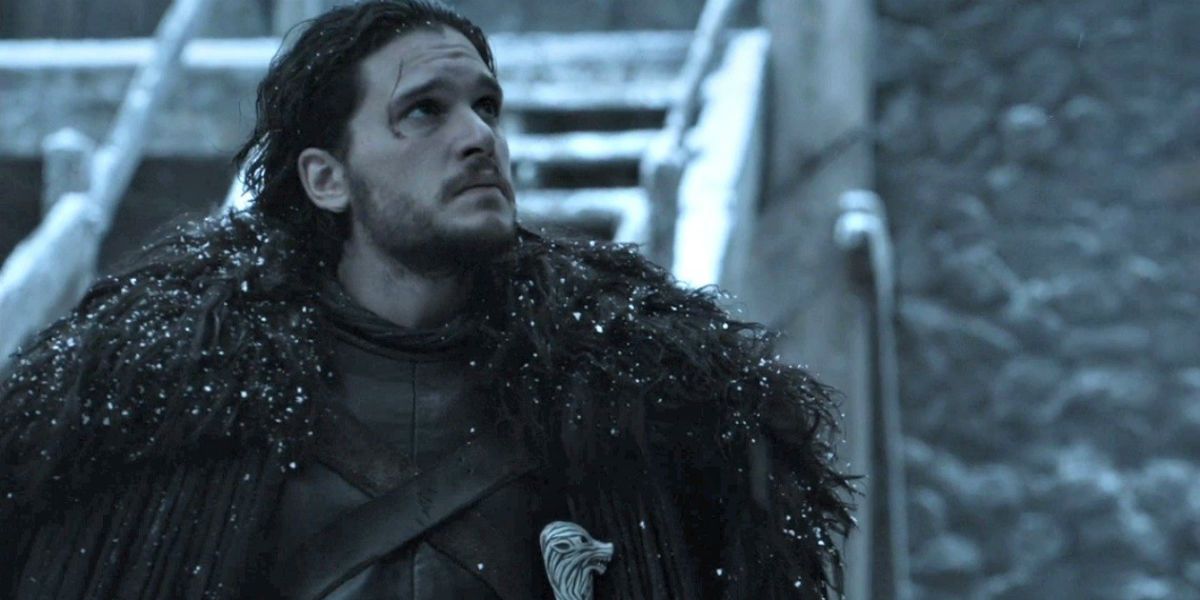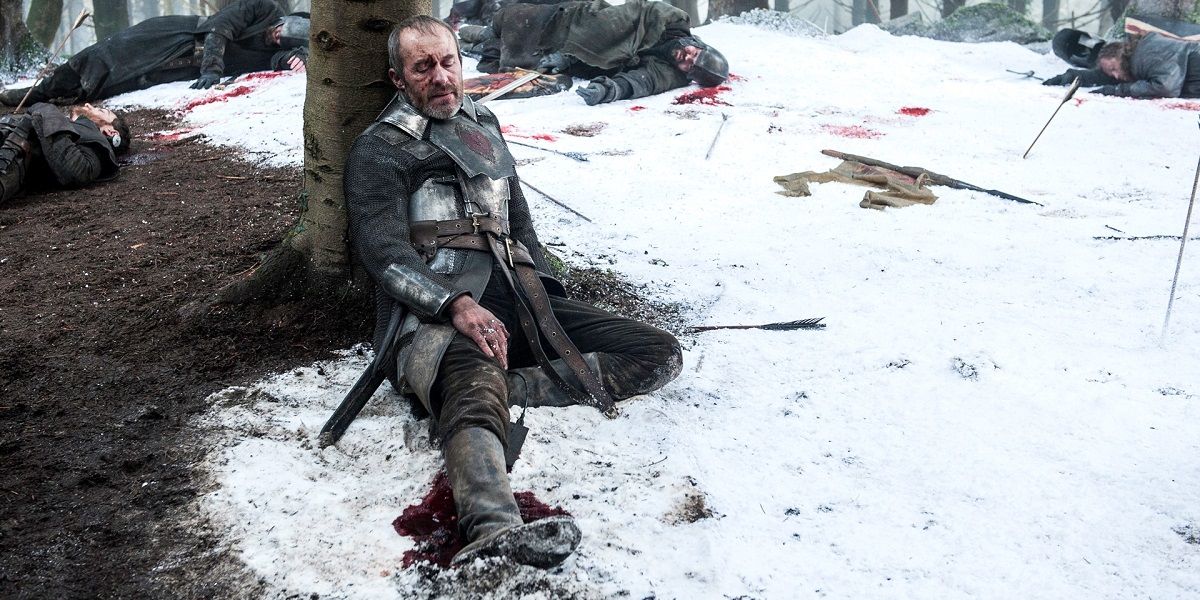Warning: Spoilers for Game of Thrones up to season 6, episode 6 ahead
-
It’s finally happened: the sixth season of Game of Thrones has surpassed the book series – A Song of Ice and Fire, written by George R.R. Martin – that it’s based upon. And considering the long wait between each novel, there is no doubt whatsoever that the television show will be able to conclude the narrative well before Martin ever does (projections for when the seventh and final volume, A Dream of Spring, will release currently target 2024 – and that’s assuming that the saga will only require seven installments).
Given this post-book reality, and given the fact that Thrones is quickly approaching its endgame (only two partial seasons remain), the plot developments this year have been landing far faster and heavier than in any previous season. Which raises the question: how do we know if all – or, indeed, if any – of these bombshell revelations will actually be contained in the upcoming final two novels? Considering all of the previous alterations that showrunners David Benioff and D.B. Weiss have made to the source material on its way to the small screen, how can we be certain that they haven’t taken the narrative in a substantially different direction? After all, just look at Daenerys Targaryen’s (Emilia Clarke) missing dragons from the second season or Jon Snow’s (Kit Harington) quest to hunt down and execute the Night’s Watch mutineers in season four.
While it might just sound like a vain hope that certain characters' stories will have better outcomes, there is evidence to suggest that Game of Thrones may not end up spoiling all of the events in the upcoming books.
What’s happened in season six thus far
In order to ascertain the literary viability or probability of all these new twists and turns that Weiss and Benioff have already thrown our way, we’ll first need to pause a moment to quickly touch upon them all:
There have been political coups in both Dorne, with Ellaria Sand (Indira Varma) and the Sand Snakes striking down the regime of Prince Doran Martell (Alexander Siddig), and the north, with Ramsay Bolton (Iwan Rheon) murdering his lord father and claiming the mantle of Warden of the North for himself
Daenerys Targaryen has pulled off a coup of her own with the Dothraki, slaying all the khals and making herself into the first-ever supreme leader of practically all the horselords.
Jon Snow has been resurrected from the dead, only to resign his post as lord commander of the Night’s Watch. He now finds himself the head of a large – and ever-growing – army to oust “Lord” Ramsay from Winterfell and to take back the north.
King Balon Greyjoy (Patrick Malahide) is killed and then replaced by his murderer (and brother), Euron (Pilou Asbæk), who wishes to marry Daenerys and conquer the Seven Kingdoms of Westeros with her – and her dragons – at his side.
Jaime Lannister (Nikolaj Coster-Waldau) is stripped of his position as lord commander of the Kingsguard after King Tommen Baratheon (Dean-Charles Chapman) is seduced to the Faith by the High Sparrow (Jonathan Pryce), and then is ordered out to the riverlands to subdue a surprise uprising there by the Tullys - the family that Lady Catelyn Stark (Michelle Fairley) was born into.
Arya Stark (Maisie Williams) definitively turns her back on the Faceless Men and their existential status of “no one” and instead resolutely embraces her identity as a Stark – along with her long list of names that need to be crossed off of her hit list.
Bran Stark (Isaac Hempstead Wright) is forced to cut short his training at the feet (er, the roots?) of the Three-Eyed Raven (Max von Sydow) when the Night’s King (Richard Brake) finds his astral projection and marks him, rendering the magical defenses against the White Walkers useless. As he and Meera Reed (Ellie Kendrick) go on the run with their brand-new protector and guide, Uncle Benjen Stark (Joseph Mawle), Bran has to meditate on all he has learned, including the secret origins of the White Walkers (they were created by the children of the forest in their original war against the First Men some ten thousand years ago) and the accidental transformation of Wylis into Hodor (Kristian Nairn) far in the past, which he himself is responsible for.
The breadth and depth of these developments is simply staggering, especially considering that the season is only three-quarters of the way through and that Game of Thrones, in typical television fashion, saves all of its really big reveals for the finale. It’s easy to see why many book readers, who have been with A Song of Ice and Fire since its earliest days 20 years ago, are growing increasingly anxious about being “spoiled” on many of the story’s biggest mysteries and cliffhangers - not the least of which was the death of Lord Commander Snow, which took five long years before Thrones caught up to and (possibly) resolved it.
How the show changed the books previously
If we take a look back at all the previous changes the Game of Thrones showrunners have made to Martin’s original narrative, we can certainly see a pattern - one that has been remarkably consistent across the first five years and which, one can assume, will only continue to be so across these last three, post-book seasons. The basis of this pattern can be found in two predominant recurring motifs: streamlining and omitting, with the two actually working hand-in-hand to bring those sequences that would otherwise be almost impossible to realize (at least, with the tight time limits and budgetary constraints that Thrones must contend with) to the small screen.
Here’s an illustrative case study. The long process of estrangement, captivity, and forced labor that Arya is forced to endure throughout the second book is dramatically reduced, in the second season, to her being taken directly to the castle of Harrenhal by the Lannister forces and her almost instant recruitment as Lord Tywin’s (Charles Dance) cupbearer. The presence of the Brave Companions, a highly notorious company of sellswords is entirely removed, and the character of Roose Bolton (Michael McElhatton), who is made the temporary regent of Harrenhal once it flips over to northern control, is wholly replaced by Tywin Lannister.
This alteration may affect Arya’s development into a stone-cold killer, and it may result in her losing a fair bit of the narrative spotlight – both she and Jaqen H’ghar (Tom Wlaschiha) play an instrumental role in helping the Brave Companions rebel against their Lannister overlords and hand Harrenhal over to Lord Roose – but it does accomplish much: it allows the story to be told neatly and trimly, to give Tywin more character development (which isn’t a priority of Martin’s in the books, as he’s already dealing with so many other characters), and to similarly streamline Roose’s eventual betrayal of Robb Stark, given that he’s allowed to stay by the monarch’s side and to constantly advise him against whatever course of action that Robb has chosen for both himself and his kingdom. In the grand scheme of things, that’s a pretty good bargain, even given the costs.
When applied to a current storyline, we can see the exact same methodology being adopted. Should Game of Thrones have directly adapted Song of Ice and Fire, Balon Greyjoy would’ve been killed off in the fourth season, and the subsequent kingsmoot would have been a far more drawn-out affair all throughout the fifth season, featuring several more factions, candidates, and subplots. There also would have been yet another Greyjoy sibling, Victarion, who is the head of the Iron Fleet and the man who is eventually ordered by his insane brother, King Euron, to go off and fetch Dany for him.
By collapsing the amount of time between setup and payoff, and by allowing a smaller selection of characters to get more screen time and, therefore, more storytelling focus, the executive producers make the story more direct, more digestible, and – so they hope – more dynamic. Again, there are some problems with this particular approach, ranging from the overt to the subtle (how did the kingsmoot become such a commonplace practice for handling matters of royal succession when the Iron Islands haven’t had a king in some three hundred years?), but its efficiency and ability to cut right to the matter at hand, both narratively and thematically, cannot be overstated.
The exact amount of spoilage
Given all this, it seems almost a certainty to propose that the basic outlines of the sixth season’s happenings – Jon Snow’s resurrection, the White Walkers’ origins, the unintended consequences of Bran’s “time traveling” – will align exactly with what readers will discover in the pages of The Winds of Winter and A Dream of Spring, whenever they finally manage to materialize on store shelves.
But just as there are far more components to Arya’s slow descent into facelessness, the exact specifics of these plot points are equally certain to be different, and probably drastically so; much is made of warging in the novels, for example, so it is likely that Jon’s consciousness will temporarily reside in his direwolf, Ghost, until his body can be revived (whether Melisandre is ultimately responsible for that or not). Furthermore, since Benioff and Weiss are none too shy about switching out tertiary characters for the main cast (again, see Roose Bolton’s and Tywin Lannister’s swap in the Harrenhal storyline), one has to assume that the same will be going on here, as well; perhaps it is not Brienne of Tarth (Gwendoline Christie) who comes to Sansa Stark’s (Sophie Turner) and Theon Greyjoy’s (Alfie Allen) aid in their escape from Ramsay Bolton (indeed, given the sample chapters that have already been released from Winds of Winter, we practically know this for a fact), or perhaps Coldhands may be revealed to be someone other than Benjen Stark (again, another near-certainty, given George Martin’s previous comments on the matter).
This conclusion is only bolstered by the recent report in Entertainment Weekly that Martin specifically provided three future book scenes to the showrunners for their inclusion in the current stretch of episodes: King Stannis Baratheon’s (Stephen Dillane) sacrifice of his daughter, Princess Shireen (Kerry Ingram), by burning her alive (which actually occurred at the end of the fifth season); Hodor’s already-legendary holding the door, which reveals how he became brain-damaged and why "Hodor" is the only word he can say; and a mystery development that will, presumably, be saved for the eighth and final season.
So, will Game of Thrones’s sixth season spoil A Song of Ice and Fire? In a word, yes – despite everything that both the showrunners and Martin himself have repeatedly said, and despite all the many superficial differences that continue to pop up and multiply as each and every year passes; after all, we sincerely doubt that the individual who ends up ultimately sitting the Iron Throne by series’s end will be an entirely different person than the one in the novels (if, indeed, there is still an Iron Throne when everything is said and done).
If you’re a book reader, the only thing to be said is to strap in for the wild ride and enjoy all the upcoming, final twists and turns – and know that, once George R.R. Martin finally arrives in the same territory, it’ll be with a nearly exponentially greater amount of characters, details, and reveals.
That will have to do.
-
Do you have your own theories as to how A Song of Ice and Fire will cover this final stretch of Game of Thrones? Do you have a different assessment of the amount of spoilers that will be contained in this endgame? Share your insights in the comments.
Game of Thrones continues tonight with “The Broken Man” at 9:00 pm on HBO.

